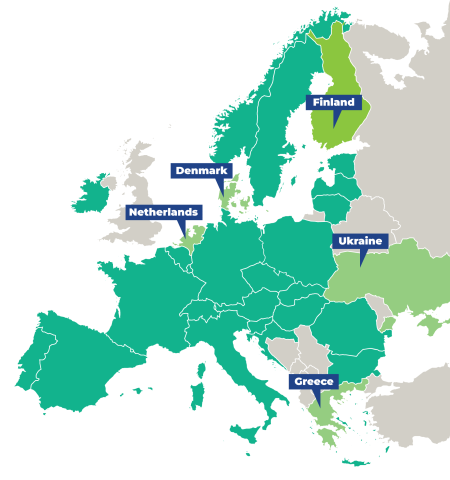Project summary
Several regions and municipalities across Europe are willing to achieve carbon-neutrality earlier than 2050 and have established regional and local climate policies. Cities and regions have a key role in leading climate actions on the local and regional levels together with stakeholders, acting as a lighthouse for different communities and networks. Improving the private sector involvement is essential, but it is not yet well supported by the policy instruments.
More dense collaboration with business communities, such as industrial districts, business parks, business development agencies and networks, will provide new opportunities for energy savings and GHG emission reductions and improve SMEs’ capabilities in contributing to the green transition.
"CLIBUS enables cities and regions to act as lighthouses, guiding SMEs in energy efficiency and climate actions"
Image
Aim, Goals & Objectives
CLIBUS aims to improve current policy instruments to better support the preconditions of SMEs and business communities in implementing energy efficiency and GHG reduction measures across their premises, installations, and processes.
- Local strategies
- Enhance the capacity of public authorities to engage SMEs in climate action.
- Strengthen public-private collaboration models to reach and support SMEs.
- Identify effective approaches to help SMEs adopt energy-efficient practices.
- Improve the use of ESG data to better target climate initiatives.
- Financial instruments
- Boost the ability of public authorities to fund local energy-efficiency and GHG reduction investments, both directly and indirectly.
To enable these improvements, CLIBUS promotes interregional cooperation and knowledge exchange on selected themes, helping public authorities to build the capacity needed to drive change. This is achieved through collaborative meetings, discussions, site visits, and the exchange of good practices.
Partnership: 7 partners from 5 countries
The CLIBUS partnership brings together European regions, including Finland, Denmark, Greece, the Netherlands, and Ukraine. Some are new to the program, while others bring valuable experience.

- LAB University of Applied Sciences, Finland (Lead Partner)
- City of Imatra, Finland
- Hillerød Municipality, Denmark
- Centre for Research and Technology Hellas (CERTH), Greece
- Region of Thessaly, Greece
- City of Eindhoven, Netherlands
- Executive Committee of the Rivne City Council, Ukraine


